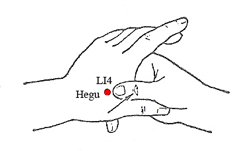 It is normal for expectant mothers to worry over the slightest change in their health condition and immediately get concerned about what effect it might have on their babies. Sometimes, such anxiety may do good as the pregnant mother will be more cautious about her health for the sake of the baby. However, at other times, mothers-to-be may become overly cautious and think of even a slight malady as a catastrophe. This article informs expectant mothers about spotting after bowel movement in early pregnancy, what to expect and what actions to take if they experience the condition.
It is normal for expectant mothers to worry over the slightest change in their health condition and immediately get concerned about what effect it might have on their babies. Sometimes, such anxiety may do good as the pregnant mother will be more cautious about her health for the sake of the baby. However, at other times, mothers-to-be may become overly cautious and think of even a slight malady as a catastrophe. This article informs expectant mothers about spotting after bowel movement in early pregnancy, what to expect and what actions to take if they experience the condition.
Spotting After Bowel Movement in Early Pregnancy--Is It Normal?
First, let’s understand what spotting actually is. Spotting is the term used to refer to bleeding that is light in nature and that typically occurs when a woman’s periods are not due. The kind of light bleeding that a woman experiences during the very early or late stages of the period is similar to spotting. The blood discharged may vary in color from red to brown. There is no cause for panic if you are undergoing your early weeks of pregnancy and have experienced light bleeding or spotting because the occurrence is very common at the time. Indeed, one in every five expectant mothers whose pregnancy continues on comes across such bleeding during her first trimester.
Spotting is more likely in cases where the woman has conceived with the aid of a fertility treatment such as In vitro fertilization (IVF). For example, if there are two embryos placed in a uterus or womb and one ceases to develop (also called a vanishing twin), then some amount of light bleeding may result.
However, in some cases, spotting may be a sign of something more critical such as a miscarriage. Therefore, it is in your own interest to get examined by a doctor if you are experiencing light bleeding during early pregnancy.
Whatever the case, it is advisable that instead of panicking, you should try to stay positive and consult your doctor to ensure everything is alright. Understanding the experience and reading up on its causes are in your best interest. This will help you relax and not get overly concerned over small things.
What May Cause Spotting After Bowel Movement in Early Pregnancy?
Spotting during early pregnancy is innocuous in most cases and occurs around the same time your regular periods would have happened. Such light bleeding typically lasts for a day or two and only becomes noticeable when you clean yourself after a visit to the toilet.
The exact causes behind this occurrence are still unclear to medical experts. However, some probable reasons have been postulated which include:
- Breakthrough bleeding. Light bleeding triggered by hormonal functions that are responsible for usual menstrual cycle. Such spotting may be experienced more than once during pregnancy.
- Implantation bleeding. When the egg that has been fertilized implants itself into the lining of the uterus, some light bleeding may result. However, this can hardly be responsible for spotting more than breakthrough bleeding is.
Moreover, there may be some other causes that can be held responsible for the spotting during early pregnancy. Some of these are:
- Cervix irritation. Since special hormones released during pregnancy can alter the surface of the cervix, it becomes more susceptible to bleeding if any irritation occurs such as after having sex.
- Fibroids. These are abnormal growths on the uterus lining that can trigger bleeding if the placenta embeds in their location.
- Cervical polyp. Tiny, benign growth on the cervix that can cause light bleeding.
- Infections. An infection in the cervix or vagina may be responsible for the spotting.
- Genetic disorders. Von Willebrand Disease is one such inherited disorder that causes problems for blood clotting and may be responsible for light bleeding.
What to Do When I Have Spotting After Bowel Movement in Early Pregnancy
Usually, it is best to consult a doctor or a midwife if you experience spotting during pregnancy. Even after the bleeding has stopped, it is a good idea to get yourself examined and get necessary tests done to make sure everything is all right.
A checkup may involve examination of your vagina or an ultrasound scan to make sure that there are no chances of an ectopic pregnancy which occurs when a fertilized egg embeds outside of the uterus. This can cause serious harm to your health, so it is best to get treatment on time. An ultrasound scan will also ensure that the baby is healthy.
Moreover, some routine tests may be carried out to make sure everything is normal. To check the level of pregnancy hormones, blood and urine tests will be needed as well as tests to confirm your blood group and rhesus status.
Want to know more about early pregnancy spotting? Check out the video below:






